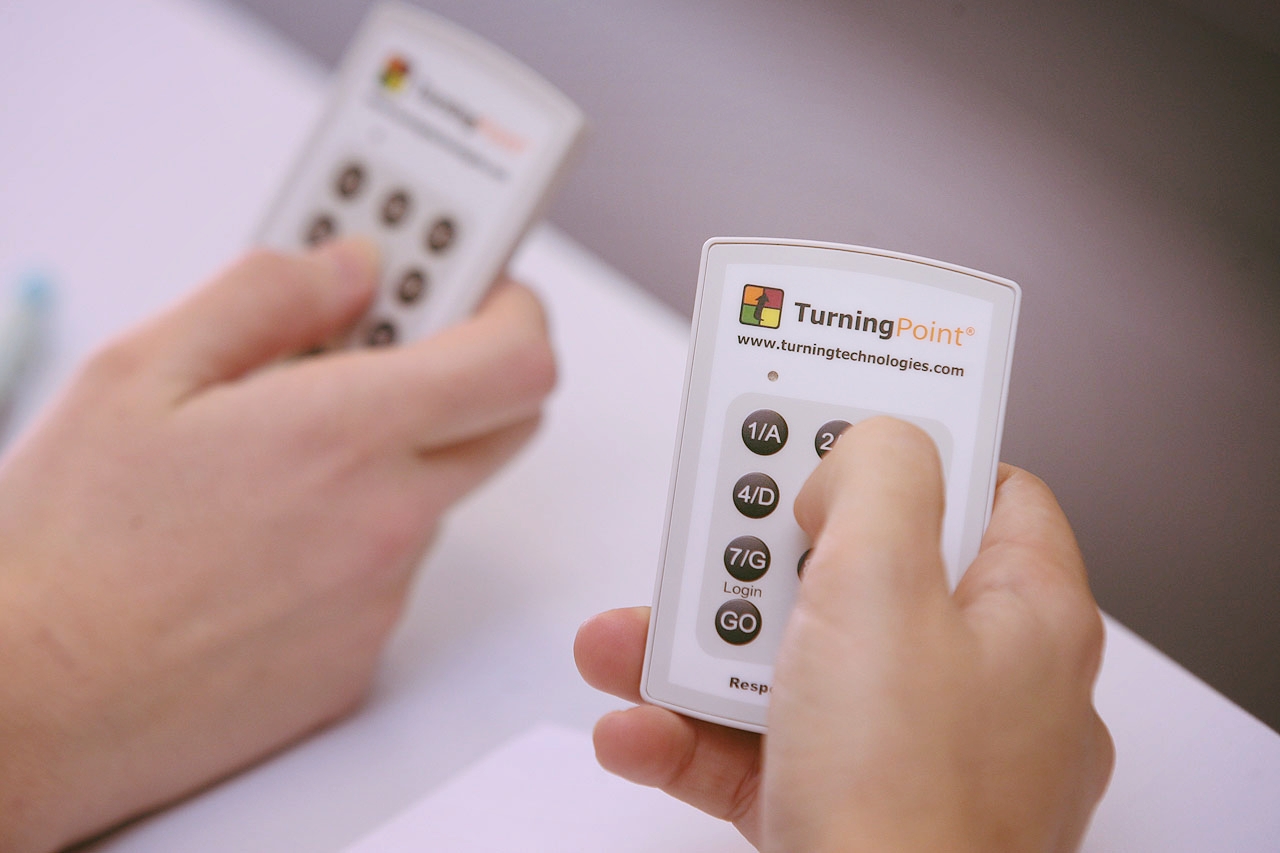Personal response systems, commonly known as clickers, are devices that allow students to send responses to questions posed by the teacher through a wireless device or a mobile application. Clickers like QuizzBox, iClicker or Turning Point are very popular, in part because of its convenience. Teachers can collect multiple responses at the same time and show the responses in a graph within seconds.
But are clickers really effective for learning? A new study published in the latest issue of the journal Computers & Education, examined clicker use among 858 undergraduate students in an introductory biology class and a physics course at a university in the Northeast United States.
Two experiments explored the role of clickers on factual and conceptual learning. One course (biology) emphasized fact retention and the other (physics) emphasized deeper conceptual understanding.
In the first experiment, the biology course, the use of clickers proved to have boosted student scores on factual questions. According to the research, clickers seemed to make a big difference in helping students retain facts.
In the physics course, though, using clickers for conceptual questions did not proved to have a good impact on students learning. It seems that these devices encourage students to focus on memorisation rather than on conceptual learning.
Researchers found that while prior research on clickers has generally had positive outcomes, limitations remain. More study in to the subject is needed.
“We suggest that, while clickers are useful in motivating students to come to class, increasing enjoyment of the class, and enhancing rote learning in didactic courses, instructors interested in imparting deeper understanding must be mindful of their overall pedagogy,” the researchers wrote. “Incorporating activities that involve students in active inquiry and problem-solving may be much more helpful than simply offering clicker questions in class, even when the clicker questions are conceptual in nature.”
In short, the mere use of a technology isn’t enough, teachers should put more attention to how devices interact with teaching and learning. “Clicker effects are mediated by pedagogy, learning strategy, and prior knowledge,” the researchers concluded.
This article from Observatory of the Institute for the Future of Education may be shared under the terms of the license CC BY-NC-SA 4.0 
)
)


)